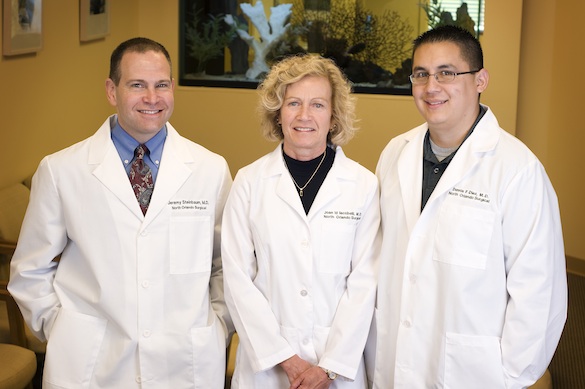Welcome to North Orlando Surgical Group
General Surgery at its Best
Central Florida’s General Surgical Practice, recognized for superior service and extraordinary experience and skills, performing minimally invasive surgery for cancer, hernia repair, and much more.
We’re proud to have established a unique surgical practice characterized by superior skills and extraordinary service, both to the patients we care for and their referring physicians. We’re recognized in our area for our ability to perform complex procedures in the least invasive way. Our patients can feel confident that the surgeons at North Orlando Surgical Group are among the area’s best, widely recognized for our superior skills, low complication rate and excellent surgical outcomes. Read More








